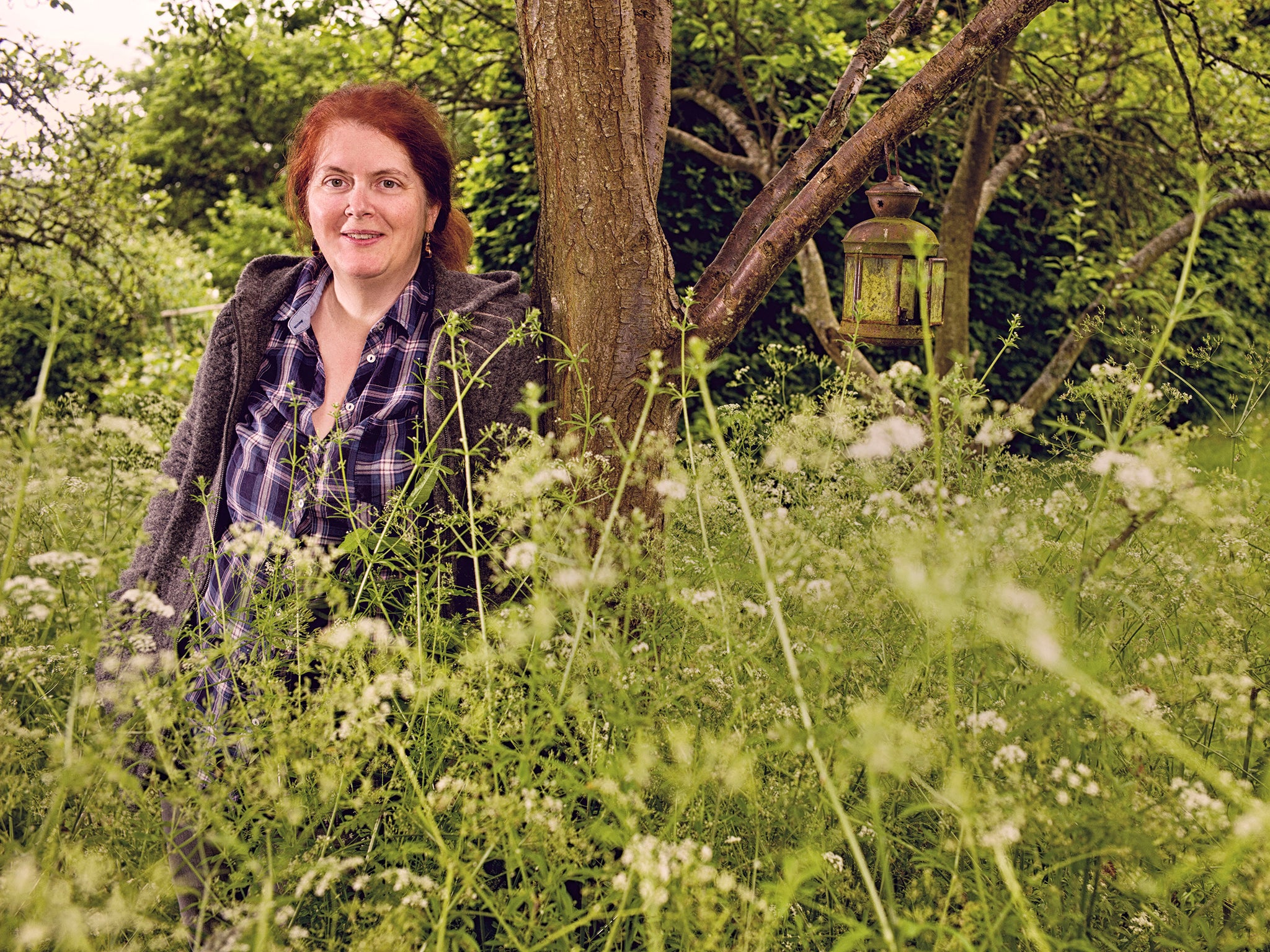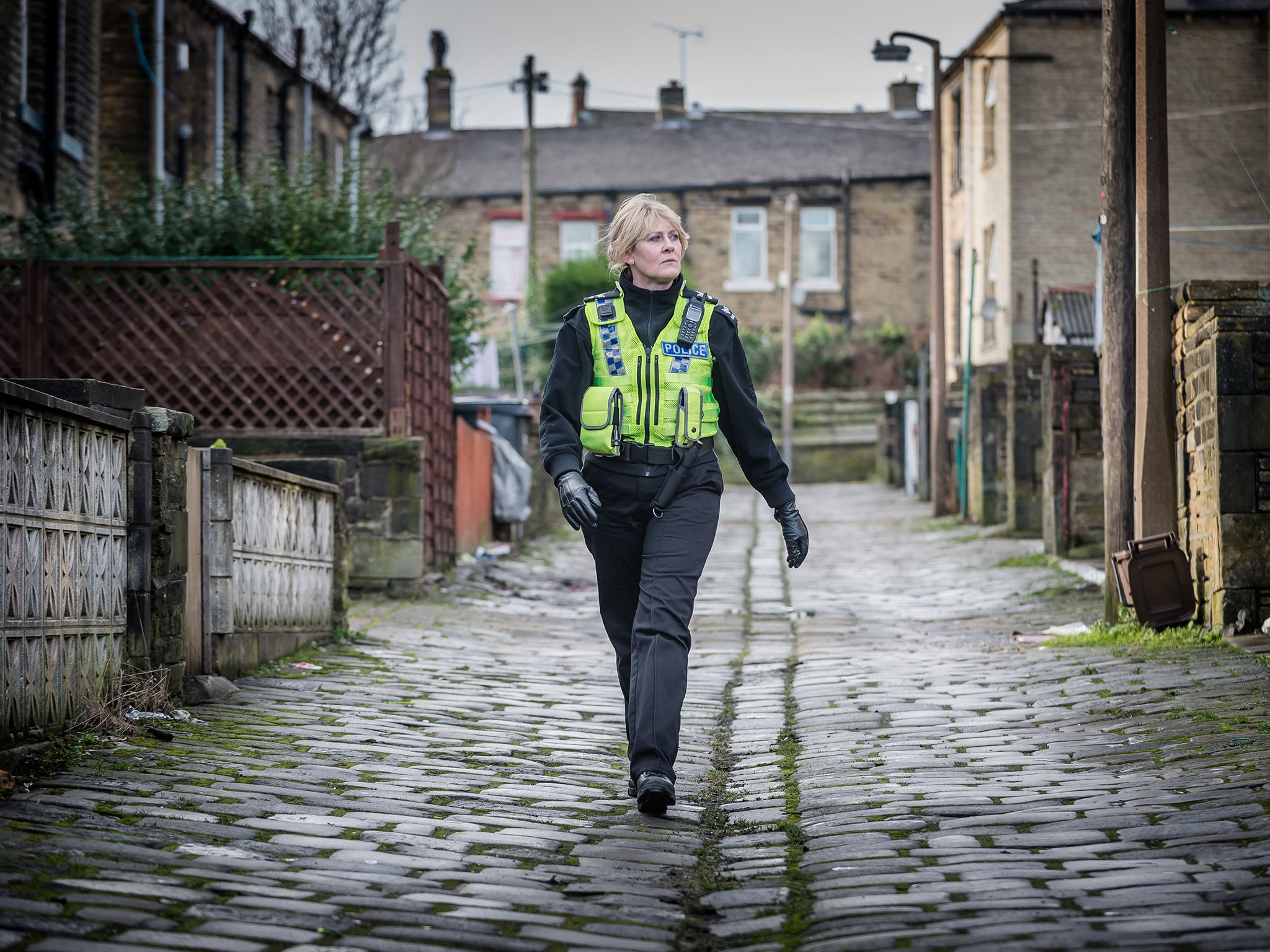Happy Valley and Last Tango in Halifax creator Sally Wainwright on how to create TV gold
With three hit TV shows, Sally Wainwright is the envy of the biz. Here she reveals the secrets of her success

Your support helps us to tell the story
From reproductive rights to climate change to Big Tech, The Independent is on the ground when the story is developing. Whether it's investigating the financials of Elon Musk's pro-Trump PAC or producing our latest documentary, 'The A Word', which shines a light on the American women fighting for reproductive rights, we know how important it is to parse out the facts from the messaging.
At such a critical moment in US history, we need reporters on the ground. Your donation allows us to keep sending journalists to speak to both sides of the story.
The Independent is trusted by Americans across the entire political spectrum. And unlike many other quality news outlets, we choose not to lock Americans out of our reporting and analysis with paywalls. We believe quality journalism should be available to everyone, paid for by those who can afford it.
Your support makes all the difference.Sally Wainwright must be doing something right.
And I don’t mean because of the swish-looking Jaguar parked in the television script writer’s driveway when I pay her a visit at her Cotswolds home. I mean because of the viewing figures she’s able to generate for prime-time show after prime-time show.
Her self-described “feminist” buddy cop drama Scott & Bailey, starring Suranne Jones and Lesley Sharp, was the most successful drama launch of 2011 and has now gone to four series. The following year, BBC1 began broadcasting Wainwright’s Bafta-winning inter-generational drama Last Tango in Halifax about former childhood sweethearts Alan and Celia (Derek Jacobi and Anne Reid) reunited via Facebook; returning for a third series in a couple of weeks, it has been a ratings winner on both sides of the Atlantic.
And earlier this year, her BBC1 thriller Happy Valley attracted viewers, controversy and some of the year’s best reviews with its graphic depiction of kidnap, rape and murder in Hebden Bridge; Wainwright is now busy working on the scripts for the second series.
Given her outstanding run of form, what exactly goes into creating a sure-fire television hit? Below are some guidelines from Wainwright herself:

Begin with an emotion
“My story ideas start out tiny and then I build up layers … Unforgiven [her 2009 drama with Suranne Jones as a young woman released from prison 15 years after being convicted of killing two policemen] came from somebody trying to sue me for plagiarism at the time. She thought I’d copied a play that she’d written and it was a completely ridiculous claim but at the same time it was scary and stressful and it made me think ‘how awful it must be to be on the wrong side of the law’. That was the starting point.”
Stay true to your roots
“Happy Valley was successful because it made Yorkshire sexy... it gets mentioned now in the same columns as Breaking Bad, and part of the success of Breaking Bad is that it’s absolutely true to itself. I think Happy Valley has done something similar… people were absolutely buying into Yorkshire. I was talking to a couple of American journalists and both of them said ‘I’m sorry to admit it but I watched it with the subtitles on’, and I thought that was fantastic… that they took the trouble.
“I [also] don’t like setting my dramas in fictional places… someone complained about Happy Valley that I made Hebden Bridge out to be a drugs den and my response to that is that most of rural England is a drugs den these days – I wasn’t singling out Hebden Bridge. Their point was that if you’re going to make somewhere out to be terrible you ought to fictionalise it, but for me it’s about being authentic.”
Don’t go transatlantic
“Most British [shows] base their research on watching American cop dramas – even Broadchurch, where David Tennant is supposed to be a detective superintendent and he goes out on to the street interviewing people, which really wouldn’t happen [in the UK]. [Before Scott & Bailey] I was lucky because I met Diane Taylor, a detective inspector with Greater Manchester police, socially, and she made sure the procedure in the series was absolutely correct.”

God is in the detail
“In the new series of Last Tango... the art department had [originally] given Caroline a brand new car, [which was strange because] in the last series she talks about having to borrow money off her mother and her girlfriend to buy out John who she’s divorcing. I think the audience do think ‘Hang on, how did that happen?’ [Minor elements like that] will affect the whether they believe in the show or not.”

Watch Apple TV+ free for 7 days
New subscribers only. £8.99/mo. after free trial. Plan auto-renews until cancelled

Watch Apple TV+ free for 7 days
New subscribers only. £8.99/mo. after free trial. Plan auto-renews until cancelled
Pay attention to the way people actually speak
“Barrie Keeffe [the playwright and screenwriter, best known for The Long Good Friday] was an early influence – he never uses commas, just full stops… just hits of language. Like David Mamet it feels fresh and very alive and how people really speak… the thought processes should be there. When I was at university I had to learn a few pages of Chekhov and I remember being shocked at how easy it was to learn because the character says what you want to say anyway.”
Strong female characters can also be vulnerable
“I write about what I want to write about and it tends to be women… I went to a conference earlier this year and the big point they made was that the ratio of men to women in the population is one-to-one, and the ratio of men to women playing the lead in mainstream popular dramas on BBC1 and ITV is two-to-one in favour of men. Women are clearly under-represented… With Scott & Bailey there were a few snippy comments about the men being weak but [what I say to that is]: look at Scott and Bailey [as characters] – they’re completely flawed. It’s just that the focus is on the women and not on the men.”

Work on a soap
“Five years on Coronation Street taught me how to tell stories. You’d sit in a room – at Corrie there were about 15 of us doing two episodes a week – and I remember fantastic writers coming up with the most mad but completely plausible ideas. It made me start thinking in detail of how one thing leads to another, and how to construct a story with a beginning, middle and an end, rather than just an incident.”
To protect your interests, direct your own drama
“I directed my first TV on an episode of Happy Valley and want to do more. On At Home with the Braithwaites, my first original piece for television [in 2000], I didn’t even get to see the rushes, and I was shocked by the extent to which the writer is pushed out of the process. Without what I do, [the show] is a blank page, but lot of people don’t quite get that… directors certainly don’t… they think [writing] grows on trees. I get upset when the director makes decisions that conflict with the script; if I get a shit review it will be my name on the review, not theirs.”
When in doubt, plan more
“I think I’ve worked out what writer’s block is… my oldest son is writing a novel and he keeps saying to me ‘I’ve got writer’s block’, and I think writer’s block is where you haven’t thought through your stories; it’s very simple – you don’t know what comes next because you haven’t thought about it.”
The new series of ‘Last Tango in Halifax’ begins on 28 December at 9pm
Join our commenting forum
Join thought-provoking conversations, follow other Independent readers and see their replies
Comments